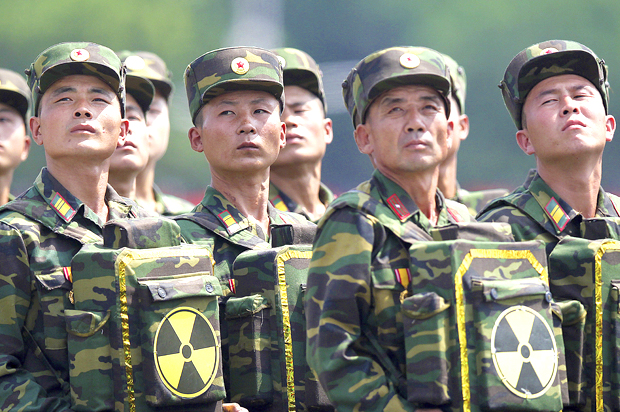North Korea has quietly reached out to Republican-linked analysts in Washington, in an attempt to further understand President Donald Trump and his intentions towards their nation.
The efforts to seek expertise began well before the recent exchange of threats between North Korea’s Leader Kim Jong-un and Trump, according to the Washington Post.
“Their number-one concern is Trump. They can’t figure him out,” a source with knowledge of the country’s approach told the Post.
North Korea’s representatives expressed during a multilateral meeting in Switzerland that they want to be recognized as a nuclear weapons–possessing state, and they are not entertaining discussions about denuclearization, the Post reported.
The Post elaborated on North Korea’s goals:
But to get a better understanding of American intentions, in the absence of official diplomatic talks with the U.S. government, North Korea’s mission to the United Nations invited Bruce Klingner, a former CIA analyst who is now the Heritage Foundation’s top expert on North Korea, to visit Pyongyang for meetings.
Trump has close ties to Heritage [Foundation], a conservative think tank that has influenced the president on everything from travel restrictions to defense spending, but no personal connection to Klingner.
Klinger declined the invitation and believes that “while such meetings are useful, if the regime wants to send a clear message it should reach out directly to the U.S. government.” Yet it appears the Trump administration has no interest in direct talks with the country.
“Early in Trump’s term, the North Koreans asked broad questions: Is the U.S. president serious about closing American military bases in South Korea and Japan, as he said on the campaign trail?” the Post reported. “Might he really send U.S. nuclear weapons back to the southern half of the Korean Peninsula?”
But now the North Koreans are interested in why Trump’s remarks often contradict other members in his cabinet, including Defense Secretary Jim Mattis and Secretary of State Rex Tillerson, according to the Post.
“My own guess is that they are somewhat puzzled as to the direction in which the U.S. is going, so they’re trying to open up channels to take the pulse in Washington,” Evans Revere, a former State Department official who dealt with North Korea and is a frequent participant in such talks, told the Post. “They haven’t seen the U.S. act like this before.”
During one meeting attended by Revere, an annual event in Glion, Switzerland organized by the Geneva Center for Security Policy, a government-linked think tank, the North Koreans demonstrated “encyclopedic” knowledge of Trump’s tweets, the Post reported.
“All countries involved in the now-defunct six-party denuclearization talks — the United States, China, Japan, Russia and the two Koreas — were represented, as were Mongolia, Switzerland and the European Union. The Swiss invited the U.S. government to send an official, but it did not,” the Post reported.
Russia and China have proposed that North Korea freeze its nuclear and missile activities if the U.S. ends military exercises in South Korea. But North Korea — as well as the U.S., South Korea and Japan— all rejected this proposal, the Post reported.
The Swiss talks terminated with no signs of improving relations, or reaching common ground.
“I’m very pessimistic,” Shin Beom-chul, a North Korea expert at the South’s Institute of Foreign Affairs and National Security said after the meeting, according to the Post. “They want to keep their nuclear weapons, and they will only return to dialogue after the United States nullifies its ‘hostile policy.’ They want the U.S. to stop all military exercises and lift all sanctions on them.”

